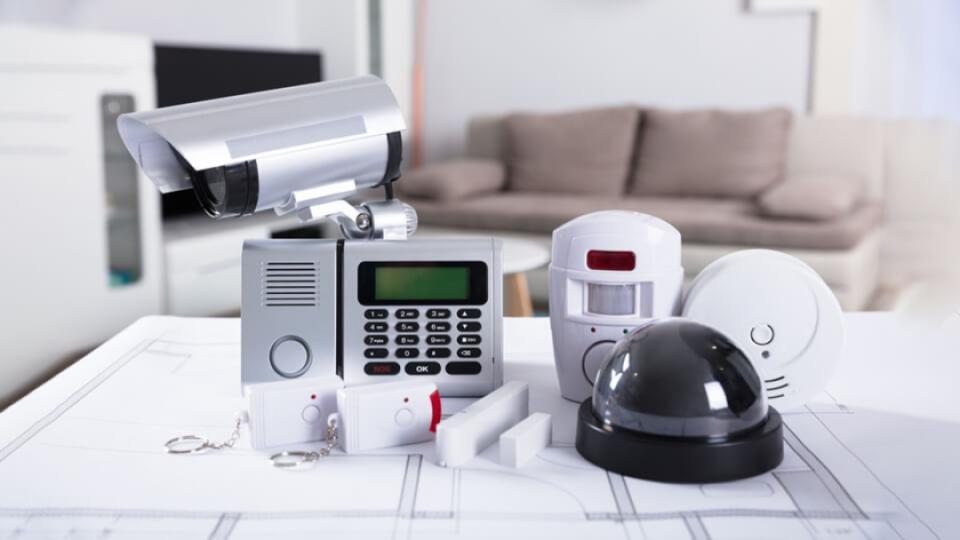Home security is of paramount importance, and it begins with understanding and evaluating potential risks and vulnerabilities specific to your property and lifestyle. By conducting a thorough assessment, you can determine the level of security required.
Types of Home Security Systems
When it comes to home security systems, there are various options to choose from. Understanding the differences between wired and wireless systems, DIY and professional installation, as well as standalone and monitored systems, can help you make an informed decision.
Components of a Home Security System
A home security system consists of several components that work together to provide comprehensive protection. These include the control panel and keypad, sensors and detectors, surveillance cameras, and alarm systems with accompanying sirens.
Integration and Home Automation
In today's smart home era, integration with other devices and home automation capabilities is an essential consideration. Ensure that your chosen security system is compatible with your smart home devices, allowing for seamless integration and enhanced control.
Monitoring Options
When selecting a home security system, you must decide between self-monitoring and professional monitoring services. Understand the differences in alarm notification methods, as well as cost considerations and service contracts associated with each option.
Considerations for Home Size and Layout
The size and layout of your home plays a crucial role in determining the type and extent of security system coverage needed. Assessing the square footage, number of entry points, and unique layout features will help ensure that your system meets your specific requirements.
Cost Factors and Budgeting
Cost is a significant consideration when choosing a home security system. Take into account equipment costs, installation fees, and monthly monitoring fees to establish a budget that aligns with your financial capabilities.
Reputation and Professional Certifications
Prioritize security companies with a reputable track record. Research companies thoroughly and inquire about certifications, ensuring that you're entrusting your home's safety to a trusted provider.
Customer Support and Warranty
Quality customer support is invaluable when dealing with security system issues or inquiries. Additionally, understanding the warranty coverage and terms provided by the manufacturer or service provider is essential for long-term peace of mind.
User-Friendly Interface and Mobile Apps
Make sure to choose a system with a user-friendly interface and mobile app. Ease of use and intuitive navigation contribute to a positive user experience, allowing you to control and monitor your security system effortlessly.
Customer Reviews and Recommendations
Take advantage of online reviews and ratings to gain insights into the experiences of other users. Seek recommendations from trusted friends, family, or colleagues who have already installed home security systems to benefit from their firsthand knowledge.
Additional Safety Features
Consider whether your security system can provide additional safety features, such as smoke and carbon monoxide detectors, integration with emergency response options, and home automation functionalities that enhance energy efficiency and overall safety.
Scalability and Future-Proofing
Plan for the future by selecting a system that offers scalability and the potential for future upgrades. This will ensure that your system can adapt and integrate with advanced technologies as they become available.
Legal and Regulatory Considerations
Stay compliant with local laws and regulations by familiarizing yourself with any specific requirements. Additionally, consider privacy concerns surrounding security systems, particularly those with surveillance camera capabilities.
Comparing Multiple Security System Providers
Gather quotes and proposals from multiple security system providers to make an informed comparison. Analyze features, pricing, and the level of customization offered to determine the best fit for your needs.
Testing and Guarantees
opt for security systems that come with trial periods and satisfaction guarantees. This will allow you to thoroughly test the system's reliability and performance, ensuring that it meets your expectations before making a long-term commitment.
DIY vs. Professional Installation
Decide whether you prefer a DIY installation or professional installation service based on your skill level and time commitment. Be aware that professional installation may offer additional expertise and peace of mind.
Local Support and Maintenance
Consider the availability of local technicians and support in case of system malfunctions or maintenance requirements. Having accessible technicians can expedite issue resolution and minimize downtime.
Navigating Long-Term Contracts
Carefully review and understand the terms and length of any long-term contracts associated with your chosen security system. Negotiate for flexibility and consider cancellation policies to avoid potential issues in the future.
Finalizing Your Decision
After considering all the factors mentioned above and conducting thorough research, you can confidently finalize your decision on choosing the right home security system tailored to your needs. Remember that a comprehensive and reliable security system is an investment in the safety and well-being of your home and loved ones. Therefore, with the help of a TrustDALE certified professional, you are sure to get all your home security needs taken care of, and don't forget you're always protected by The TrustDALE $10,000 Make It Right Guarantee™.

